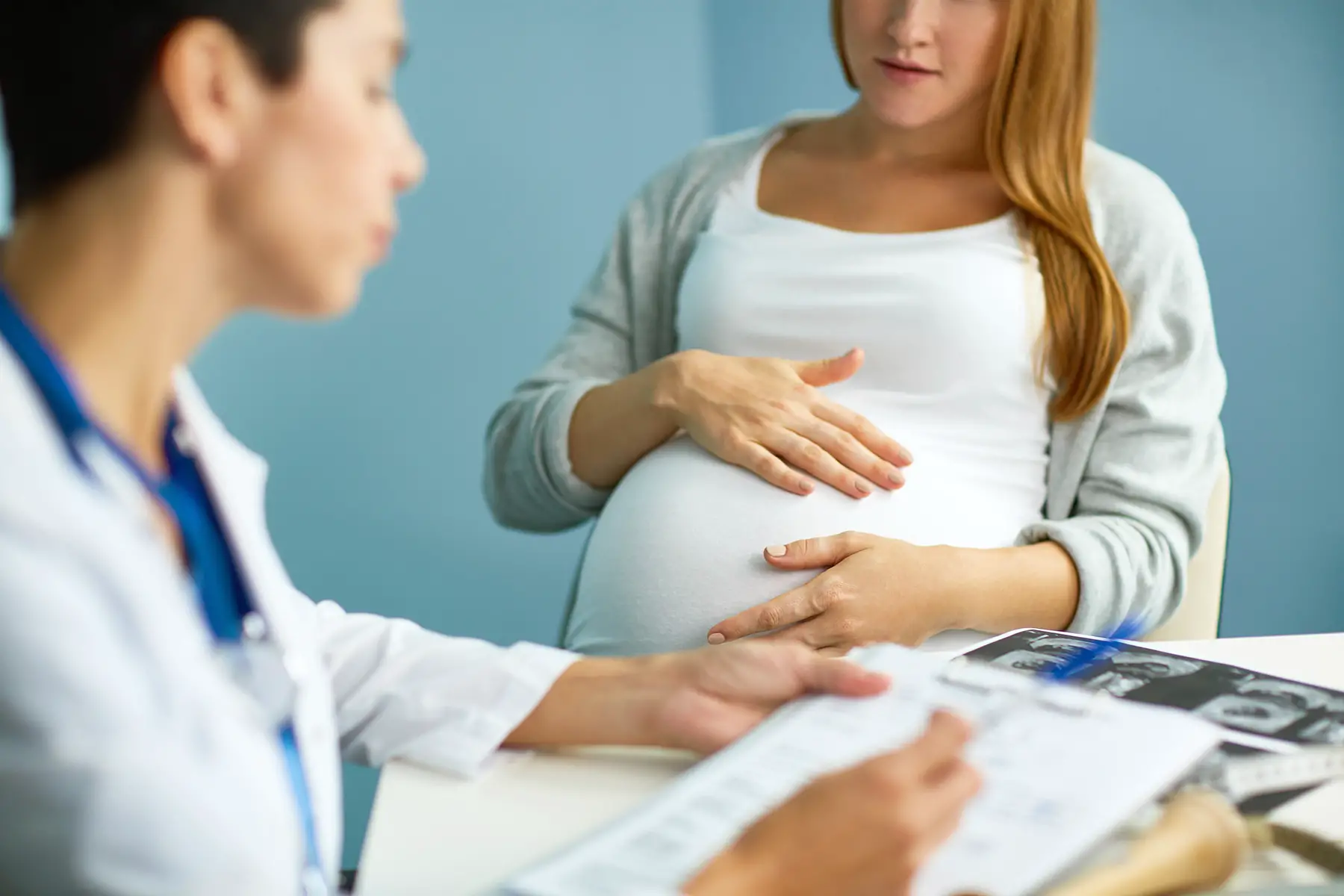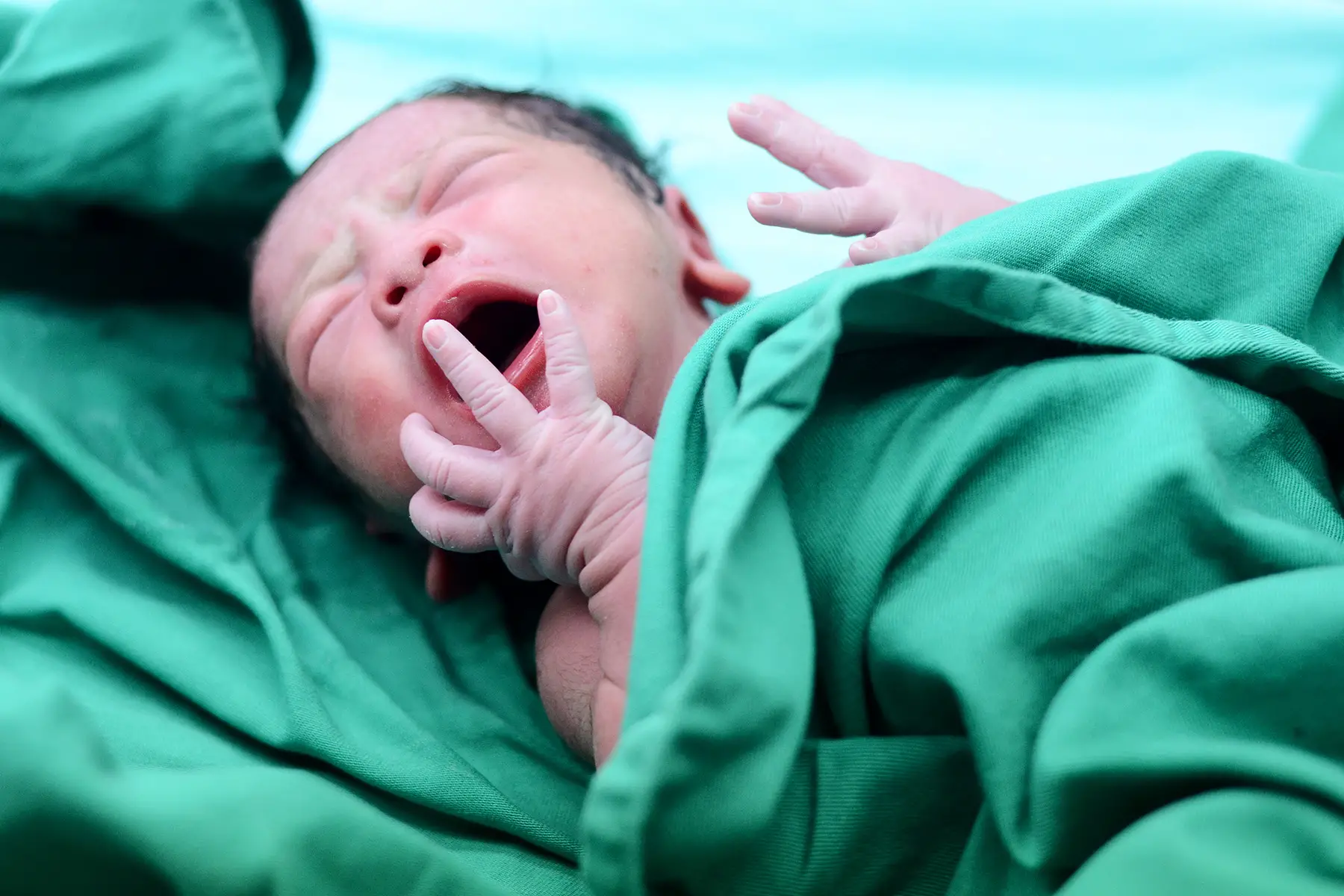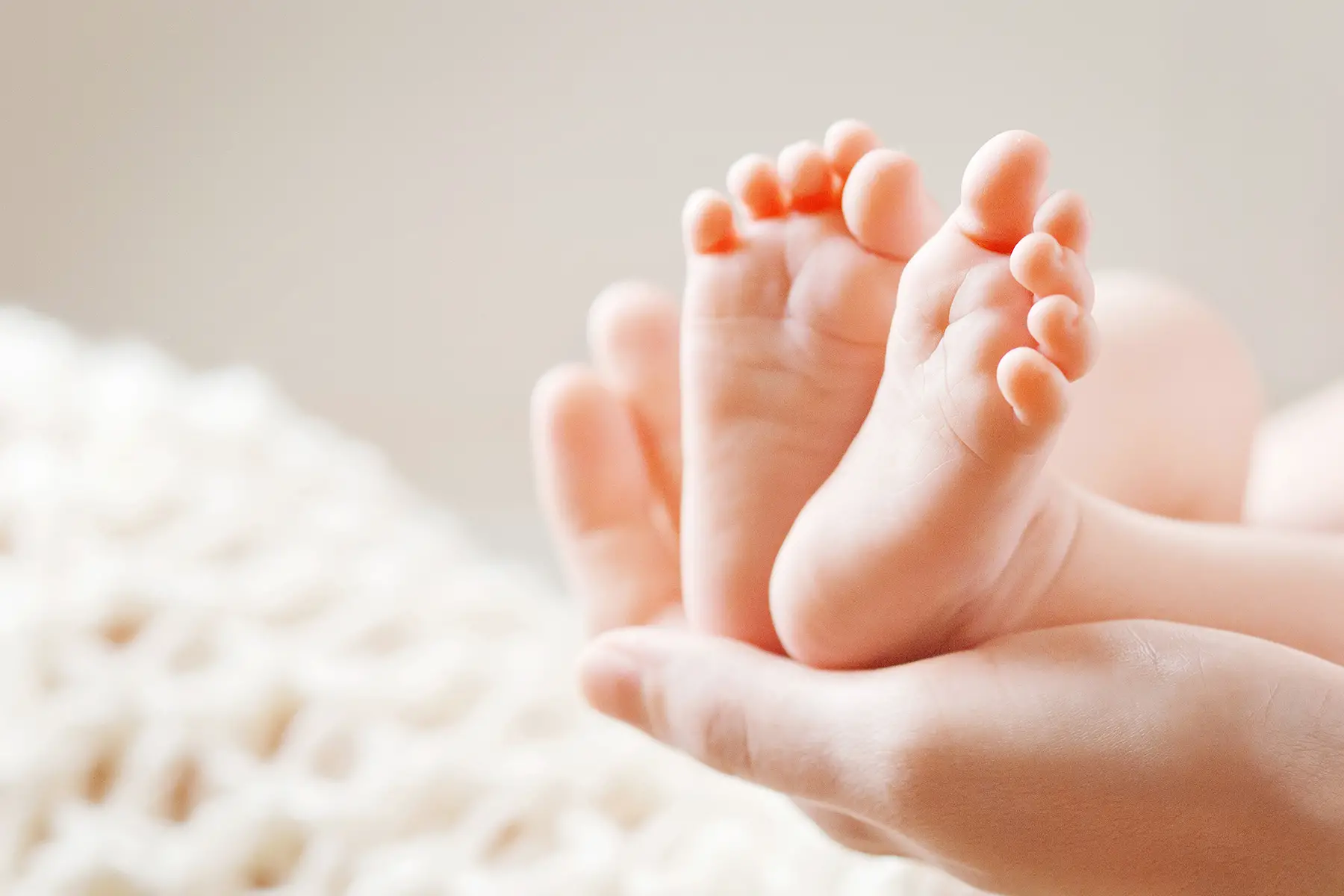Giving birth in a foreign country may seem scary when you’re unfamiliar with the healthcare system. This helpful guide explains what to expect when having a baby in the UK, so you can be prepared at every stage; from prenatal to delivery and aftercare. It also contains information about how to register your baby in the UK, gaining British citizenship, and employment regulations concerning maternity leave and pay.
The guide covers the following areas:
- Pregnancy and childbirth in the UK
- Accessing maternity services in the UK
- Who is entitled to free NHS maternity care in the UK?
- Private insurance for maternity treatment in the UK
- Pregnancy testing in the UK
- Prenatal care in the UK
- The delivery: having a baby in the UK
- Post-natal aftercare in the UK
- Registering your baby’s birth in the UK
- Child benefit in the UK
- Giving birth as a tourist in the UK
- Is my child eligible for British citizenship?
- Maternity and paternity leave in the UK
- Childcare in the UK
- Useful resources
Cigna Global
Expecting a baby in the UK? Enjoy peace of mind with Cigna Global’s private healthcare. Gain access to top maternity care, pediatricians, specialists, and a global network tailor-made for your growing family. Start your parenting journey with confidence – Cigna Global has you covered.
Pregnancy and childbirth in the UK
Between 750,000 and 800,000 babies are born in the UK each year. However, birth rates have fluctuated dramatically over the course of the past decade. According to the Office for National Statistics, there were 774,835 live births in the UK in 2016; down from a peak of 812,970 births in 2012. And as with other parts of the developed world, women are giving birth in the UK later than ever. As of 2019, the average woman in Britain is likely to have had just one child by the age of 30; as compared to 1.8 on average for her own mother.
The UK ranks 24th in the world for quality of maternity care, according to a report released by the charity, Save The Children. The study evaluated the safety of mothers while giving birth, how much time they have to recover, and the wellbeing of children after they are born. Nevertheless, mothers having a baby in the UK can expect to be well supported by the publicly-funded National Health Service (NHS). While some opt for a home birth or a private clinic, many are satisfied with NHS maternity services. These are provided from well before birth to about six to eight weeks after. More than 80% of women surveyed by the Care Quality Commission said they were always spoken to in a way they could understand; whether by midwives, doctors, or staff.
Pregnancy as an expat in the UK
Most expat women in the UK give birth supported by free NHS care. If the pregnancy is relatively low-risk, mothers-to-be can choose where they want to give birth. Maternity options include specialist clinics, hospitals, community units, or their own home. They can also decide whether they want a midwife or a doctor in attendance.

Approximately 5% of women opt for private maternity care in the UK. Their main reason for doing so is to get more personalized medical care, closely followed by a desire for additional comfort. Several private health insurance providers in the UK offer maternity policies for expats.
About one in four women living in Britain give birth by cesarean section. It is possible to choose a planned cesarean in the UK; should your doctor be unwilling to perform the operation, they should refer you to a doctor who will.
Accessing maternity services in the UK
Expats living in the UK can access a range of maternity services through the NHS. These include consulting with GPs, obstetrics, and gynecology professionals, as well as cervical screenings, emergency surgery, and so on. You can find a doctor in your local area on the NHS website. You can also ask your GP to recommend a hospital that provides maternity services in your area.
Once you decide which specialist and hospital you want to attend, you can either book an appointment through your GP while you are at the surgery, or online through the NHS e-Referral Service; using the appointment request letter from your GP. You can also phone the NHS e-Referral Service line on 0345 608 8888 (open Monday to Friday, 08:00 to 20:00, and weekends and bank holidays, 08:00 to 16:00).
Alternatively, for medical advice on specific maternity or women’s health issues, you can attend a well woman clinic, which many general practitioners provide. Here you may be seen by a female doctor or practice nurse, who can help with issues such as emergency contraception or other questions you may have about having a baby in the UK.
Read Expatica’s guide to women’s healthcare in the UK for more information.
Who is entitled to free NHS maternity care in the UK?
Most foreign nationals living and working in the United Kingdom have access to free UK healthcare through the publicly funded National Health Service (NHS). The system provides maternity care — including antenatal, birth, and post-natal care — free of charge to women who fall within the following categories:
- Ordinarily resident in the UK: requires a person to live within the UK lawfully, voluntarily, and with the purpose of settling. The NHS decides on a case-by-case basis whether the expectant parent meets the criteria;
- EEA nationals insured by another European state;
- Those exempt from charges: including refugees, asylum seekers, legal residents for at least 12 months, workers employed by a UK organization, and self-employed persons.
If you don’t fall within these categories, you might be asked to pay for your care while having a baby in the UK. However, you legally can’t be refused maternity care within the country if you are unable to pay in advance. The NHS may pursue the debt after if charges apply. NHS care, however, is typically free if you are working and paying national insurance contributions in the UK, or if your husband is working in the UK.
Alternative options to NHS hospitals are available, including home births or having a baby in a private UK hospital. This can be an expensive option, however, but you will typically have access to better facilities. You can explore private healthcare options from a number of different private UK health insurance companies; otherwise, you must bear the costs yourself.
Private insurance for maternity treatment in the UK
If you want to go private or aren’t entitled to receive free NHS treatment in the UK, you will need private health insurance to cover the costs when having a baby in the UK. There are a number of large expat-friendly health insurance companies which provide maternity coverage in the UK. These include:
Pregnancy testing in the UK
To confirm if you are pregnant in the UK, you can find home pregnancy kits in all chemists and most supermarkets. They can give a quick result and you can do the test in private. You can carry out most pregnancy tests from the first day of a missed period. If you don’t know when your next period is due, do the test at least 21 days after you last had unprotected sex. Some very sensitive pregnancy tests can be used even before you miss a period, from as early as eight days after conception.
If the test shows positive, make an appointment to see your GP or midwife who will confirm the pregnancy. You may be able to get a free pregnancy test from your GP. Alternatively, you can consult one of the following places that provide free pregnancy tests:
- Community contraceptive clinics (find sexual health services near you)
- Sexual health clinics
- Some young people’s services (call the national sexual health helpline on 0300 123 7123 for details)
- Brook centers: for under-25s
You may also be able to get a pregnancy test free of charge from your GP.
Prenatal care in the UK
Once your pregnancy is confirmed, you should immediately make an appointment with your doctor or midwife to organize prenatal care and start getting the appropriate healthcare for you and your baby. You will also have two ultrasound scans around week 12 and 20 to assess your progress in whichever hospital, midwifery unit, or birthing center you have chosen. Several antenatal checks and tests are also undertaken, such as screening for Down syndrome. In total, you may have up to 10 appointments during the nine months of pregnancy.
Having a baby in the UK or anywhere else requires a fair amount of preparation. Various classes, most often organized by the National Child Birth Trust, are held in local communities to help expectant parents prepare for what lies ahead. They may include learning how to handle a newborn baby or preparing for the birth itself. You can use the NHS website to find UK maternity services near you or visit Which? for more help.
Your doctor or midwife will make sure you get a clear picture of your pregnancy in the UK, nutrition, and available classes; so feel free to ask all the questions you have. Your details will be entered into your record and will be updated by the midwife at each additional appointment. It is important to keep this record safe as it will be needed on the day of your delivery.
Vaccinations during pregnancy
The NHS recommends that expectant mothers have the flu and whooping cough vaccines administered during pregnancy. The authority lists a range of vaccines that are available to pregnant women, including the tetanus vaccine; alternatively, you can ask your GP or midwife for more information.
If the vaccine involves the use of a live version of the virus, such as the MMR vaccine, it will normally be given after your baby is born because these vaccines could cause your unborn baby to become infected. The NHS says there is no evidence that any live vaccine causes birth defects.
Find out more about vaccinations in the UK in Expatica’s guide.
The delivery: having a baby in the UK
When signs of labor begin, you should head to your chosen hospital, birthing center, or community unit; or advise the midwife if you have decided to have a home birth, all of which are available in the UK.
Upon arrival at the maternity ward, check in with the admissions desk and show your birthing plan. You will then be set up in a delivery room, checked to determine what stage you are at, and cared for by the medical staff. Your partner, or birthing partner, is permitted to be alongside while you are giving birth in the UK.

Delivery rooms in most maternity wards are much homier these days. You will often find several chairs and beanbags for you to move around during your labor. You may even find they have a bath or shower to make you feel more comfortable. Some maternity wards have birthing pools available for those who don’t show any labor complications, but you typically need to request this option and book well in advance.
Pain relief and hospital discharge
There is a wide variety of pain relief options for giving birth in the UK; some of which are commonly offered in other European countries. They include hydrotherapy, intramuscular painkiller injections, gas and air (Entonox), Transcutaneous Electrical Nerve Stimulation (TENS), and epidural anesthesia. Some hospitals also allow alternative pain relief methods; however, you would have to enquire beforehand and organize them yourself.
While a small selection of mothers may be released as early as six hours after giving birth in the UK, it is more common to spend a night or two in the postnatal ward. Mothers who have chosen private insurance are usually able to have a room of their own. They can also have their husband or companion of choice in attendance. Once your midwife or doctor is happy that both you and your newborn baby are well enough to go home, you will be discharged.
If it is your first baby, it can be a bit overwhelming. The midwives are there to help and make sure you have all the information you need to peacefully go home with your newborn.
Post-natal aftercare in the UK
If you have chosen to have your baby in a UK hospital, you and your baby will remain in the maternity ward until the medical staff gives the all-clear to return home. This can be as early as six hours after the birth if there are no complications. It may be that a newborn child is kept in longer than the mother, particularly where premature births are concerned.
Before leaving the ward, make sure to enquire about any details about post-natal care in the UK if anything is unclear. Also, bear in mind that British law requires you to have an appropriate child seat fitted for your baby if you are traveling home by car.
Following the release of both mother and baby, a midwife will visit your home around every second day during the first 10 days. The midwife will check your recovery from labor and that your baby is feeding and gaining weight; the period may be extended for up to four weeks if the midwife isn’t happy you are both settled.
A health visitor, who is a qualified nurse with extra training, will be assigned to you around 10 days after your baby is born. They will pay regular visits during the early years of your baby’s childhood. They will present a health checkbook; parents can use this to chart the progress of their child and keep track of the vaccinations and tests undertaken.
The mother, meanwhile, is expected to undergo a postnatal check-up with her doctor six to eight weeks after the birth. Visit the NHS website for an extensive list of post-natal services and support available to parents, including mental health and therapy in the UK.
Registering your baby’s birth in the UK
Parents have up to 42 days to register the birth of their child in the UK; except in Scotland where the limit is 21 days. You may be able to register the birth at the hospital before the mother leaves; the hospital will advise if this is available. This is more commonly done, however, at the local register office for the area where your baby was born in the UK.
If you are unable to register at the designated office, you can go to any register counter and the registrar will send your details to the appropriate district office. Here is a guide to who can register a baby’s birth in the UK.
To register, you may be asked to supply:
- Your baby’s full name and gender;
- The baby’s place, date, and time of birth;
- Your own details including full name, address, place, and date of birth, and occupation;
- Mother’s maiden surname;
- Sate of parents’ marriage or civil partnership.
You should also take the following documents with you to the register office:
- Identification: ie. passport, birth certificate, deed poll, driving license, proof of address, Council Tax bill, or marriage/civil partnership certificate;
- Your child’s personal child health record or red book;
- Proof of paternity from your partner if you are going on your own.
After registering the birth
After registration, you will receive the short birth certificate that contains only the baby’s details for free. Copies of the short birth certificate, as well as longer versions carrying parental information, can be bought any time from the register office. If you registered at an office in the area where the birth took place, you will immediately be given the short birth certificate. Otherwise, you will receive it in a few days.

As having a child usually affects your taxes, benefits, and local council privileges, most districts in the UK offer a Tell Us Once service. This allows you to report the birth to several government bodies in one go. The registrar will inform you whether this is available in your area. If not, you will need to take further steps to claim Child Tax Credit and contact JobCentre Plus regarding your benefits.
Expats who gave birth or are living in Scotland and Northern Ireland should check the National Records of Scotland or NIDirect websites respectively as the birth registration process varies in these regions.
Child benefit in the UK
From the moment you register a birth in the UK, you will be permitted to claim child benefit in most cases. Generally speaking, expats who have the legal right to reside in the UK and call it their main home are granted child benefit in the UK – but there are certain exceptions.
For the first child, you will receive £20.70 per week and for any further children £13.70 per week (as of 2016) in child benefits; all of which is paid into your bank account by direct debit every four weeks. If one of the parents earns more than £50,000 a year, the amount of child benefit received may be affected or you may incur a tax charge. You can also choose not to get the payments, but are advised to fill in the claim form.
Giving birth as a tourist in the UK
Being born in the UK doesn’t automatically make a baby a British citizen. Nevertheless, tourists or non-resident women may choose to give birth in the UK for a number of reasons.
Tourists and visitors on holiday in the UK are required to have medical insurance covering any health eventuality. If you are pregnant and think there is a chance you may need to deliver while on holiday, check with your insurer to see if you are covered. European citizens who are having a baby in the UK while on holiday can benefit from the reciprocal privileges; these are provided by the European Health Insurance Card (EHIC).
If you are not ordinarily resident in the UK, do not have EEA nationality, or have not paid the health surcharge, you do not qualify for free NHS maternity care and may be asked to pay. However, you cannot be refused care if you cannot pay at the time you receive care. In such cases, you should ask to speak to the Overseas Visitors Manager at the hospital; you can explain your circumstances and discuss future payment options. Maternity care in the UK includes all antenatal, birth, and post-natal care. It is classed as ‘immediately necessary treatment’ and must not be denied for any reason.
Where to give birth as a visitor
As with those who are covered by the NHS, foreigners can also choose where to have a baby in the UK. Whether you choose to deliver at home, in a birth center, or in hospital, the NHS charges the same fees. Maternity Action UK, a charity that aims to improve the health and wellbeing of pregnant women in Britain, offers the following indication of costs:
- Antenatal care: £1,590–4,233
- Birth: £2,244–3,282 (plus additional payments if you need a long stay in hospital)
- Postnatal care: £355.50–1,207.50
For information about charges for visitors from overseas, see the NHS Choices website or the Birthrights Fact Sheet on Foreign Nationals and Maternity Care.
Is my child eligible for British citizenship?
Babies born in the UK to at least one parent who is a British citizen or has UK permanent residency (also known as Indefinite Leave to Remain) at the time of birth are automatically granted British citizenship. Children of EEA/Swiss parents who have resided in the UK for at least five years while exercising treaty rights are also extended the same status.
To complete the registration, you must send the following documents to UK Visas and Immigration (UKVI):
- The completed MN1 application form
- Full birth certificate with parents’ names
- Parents’ passports
- Biometric information (fingerprints and a photo)
- Payment slip of £936
- Proof that one parent is either British/has permanent residency or evidence that one parent is an EEA/Swiss citizen with permanent residency
Maternity and paternity leave in the UK
If you give birth in the UK, you entitled to take a total of 52 weeks of UK maternity leave if you are considered an employee and meet the conditions (see below). Only 39 weeks are covered by maternity pay, however. You are not obliged to take the full year off; however, it is compulsory to take a two-week leave after your baby is born; this is extended to four weeks if you work in a factory. You can calculate how much maternity or paternity pay you will receive.
The first 26 weeks are considered normal maternity leave; mothers are then entitled to extend their maternity leave for an additional 26 weeks. They must, however, inform their employer first to get the additional time. Your employment rights are protected during your leave. You can’t get fired, but your employer might require you to give a return date. However, certain employment types have different rules of entitlement, such as agency workers, directors, and educational workers.
You can begin your maternity leave starting from 11 weeks prior to the expected childbirth week. Leave is otherwise automatically activated the day after delivery; or a month before your due date if you have to leave work due to a pregnancy-related illness.
Maternity pay
New mothers qualify for Statutory Maternity Pay (SMP) if they:
- Have been in employment with the same company for the previous half a year (26 weeks);
- Earn at least an average of GBP 112 weekly;
- Have given your employer a written notice at least 28 days in advance, and proof of pregnancy.
Although SMP is paid for up to 39 weeks, it differs during the entire period. It covers 90% of your average gross weekly earnings for the first six weeks; and GBP 139.58 a week or 90% of your average weekly earnings for the remainder; whichever is lower. More maternity leave and pay may be granted, however, under a company maternity scheme.
Women who don’t qualify for the SMP can check whether they fulfil the criteria to receive Maternity Allowance, a weekly payment made through Jobcentre Plus.
Paternity leave
UK paternity leave is capped at one or two weeks for fathers; this must be taken within 56 days of the birth. For the period you take from work, you will receive GBP 139.58 a day or 90% of your average weekly earnings; whichever option is lower.

Parents with newborns may also be eligible for Shared Parental Leave (SPL) and Statutory Shared Parental Pay (ShPP). These two new initiatives, launched by the British government, give parents flexibility in sharing the care of their child during the first year of their birth. Check here to determine your eligibility.
Childcare in the UK
Women who are having a baby in the UK will be pleased to know that the island nation is home to numerous nurseries and crèches. Many of these will accept children from a very early age. Most will look after children from as early as 07:00 until 18:00 to allow parents a full work day. There are also government initiatives that help families cope with the cost of daycare by offering childcare vouchers tax-free through employers. Read Expatica’s guide on the childcare system in the UK.



